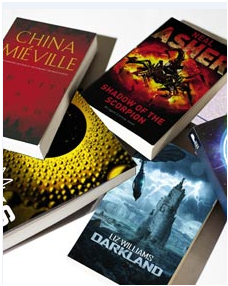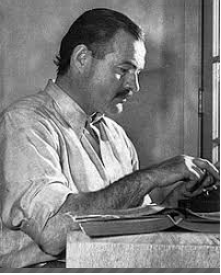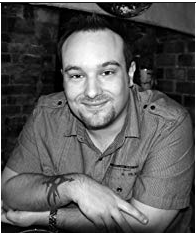Fiction writing as a catharsis?  Courtesy of The Guardian Courtesy of The Guardian Do novelists use their fiction as a catharsis for their personal issues? Since I began my writing journey, I’ve realised that many people believe they do. ‘I’m keen to read your books,’ someone once told me. ‘I’ll find out more about what makes you tick.’ I’m paraphrasing, but that was the essence of her words. ‘No, you won’t,’ was my inner response. Her comment got me thinking, however, so I mentioned the conversation to a fellow novelist. ‘A friend of mine believes fiction writers explore their issues via their writing,’ I told her. ‘I think that’s a huge overgeneralisation. I don’t.’ The reply was immediate, its tone dismissive. ‘Of course you do. Don’t all writers?’ I was flabbergasted. It’s a view I strongly contest. Its proponent is, I believe, falsely extrapolating from her own circumstances. For her, writing is indeed a catharsis; she uses her work as a vehicle to explore her childhood issues. She’s not alone. Stephen King has said that he writes about what scares him as a way to exorcise his own demons, using fiction as an alternative to therapy. Fair enough, but for me, it seems a flawed assumption to say that all writers are the same. We're not all tortured souls in need of therapy  Courtesy of Wikipedia Courtesy of Wikipedia The notion that authors use their novels as a catharsis for exploring their psyche seems a common one, though. Perhaps it comes back to our tendency to embrace one-size-fits-all stereotypes as a convenient, but lazy, way of interpreting the world. Once an image gets into the popular imagination, it sticks. Fiction writers? Aren't they all tortured souls who fuel their literary outpourings during the small hours via copious amounts of alcohol, in between lamenting the perils of writer’s block? Take Ernest Hemingway, right? Case closed. The truth is, novelists are a diverse bunch. Sure, some will seek to explore personal issues via their fiction. Others won’t. There’s no cookie-cutter profile that fits all. I can best give my own position by saying that I’m a private person; the notion of exploring my psyche publicly via my novels fills me with horror. Writing is not, I repeat, not a catharsis for me. None of the terrible issues I inflict upon my long-suffering characters have ever happened in my life. I’ve never been kidnapped, violently raped, endured a psychotic sibling or absent parents. Phew, plenty of things there for which to be grateful! My motivation for writing fiction is simple. I love being a novelist. OK, so my books fall into the psychological suspense category. That in itself says nothing about me. Yes, I’m fascinated by the workings of the human mind, but there aren’t many topics in which I’m not interested. Maybe some people will say 'Methinks the lady doth protest too much', but if that's you, then so be it. I can't change how you think, and besides, I'd rather be writing. My seventh novel beckons... Novelist Iain Rob Wright's take on the subject  Iain Rob Wright Iain Rob Wright Other fiction writers agree with me. The British horror/thriller novelist Iain Rob Wright said on his blog: ‘Just because someone has read one of my books, does not mean they know a single thing about me. I write characters with views of their own. If one of my protagonists collects stamps, that does not mean that I do. The truth is that I would never make my own views entirely obvious through my work, because then I am not creating fiction, I am writing propaganda.’ My point exactly! So to readers of my books, of Iain’s books, to fiction readers in general, I’d say this. Read our novels because you enjoy them, not to discover more about us. Don’t think you can judge an author by his/her books. You can’t presume to know a novelist's motivation for writing, unless they’ve publicly stated it. What do you think? Let me know! I’d be interested to hear from other fiction writers. Is your work cathartic for you? If so, to what extent? Readers, do you make assumptions about an author based on what they write? Leave a comment and let me know!
5 Comments
Interesting discussion. I think I'm half and half. I wouldn't want to put too much of myself into my novels, but some of my thoughts and feelings are voiced through my characters. My stories have also allowed me to have a say on topics that I feel strongly about, and this has resulted in some readers Googling me to check that I haven't been in a children's home (like Michael in The Abattoir of Dreams.)
Reply
10/9/2019 13:26:39
I definitely keep myself out of my books - no way an introvert like me will do otherwise, I think!
Reply
Robin Sykes
7/9/2019 07:50:40
Does anyone truly know their own self?
Reply
10/9/2019 13:28:34
Thanks for the comment, Robin! No, the mistake was just that - a mistake - I've now gone back and fixed it. Oops! :-) However did I let that slip through the net?!
Reply
Barry Brown
1/10/2019 13:27:03
The only generalisation you can possibly make with any validity is that anyone's work is colured by their experiences and world views ... how could they not be. Any thing you think or write about must be perceived through Maggie-coloured glasses. But that colouring can range from the merest tint to the positively autobiographical.
Reply
Leave a Reply. |
Categories
All
Subscribe to my blog!
Via Goodreads
|
Join my Special Readers' group and receive a free copy of 'Blackwater Lake'!
|
Privacy policy Website terms and conditions of use
Copyright Maggie James 2018 - current date. All rights reserved.
Copyright Maggie James 2018 - current date. All rights reserved.
 RSS Feed
RSS Feed
